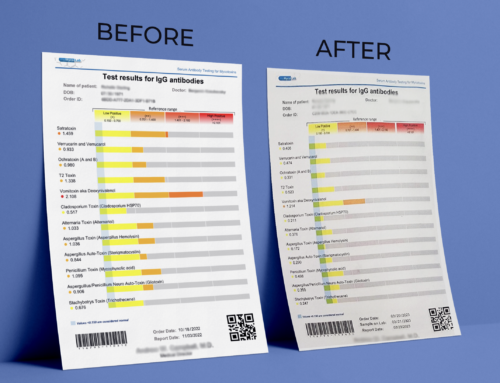Borrelia Testing
The Biologix Center for Optimum Health has been at the forefront of advocating for the use of the Phelix Borrelia-Phage test, (Redlabs.be) which is widely considered to be the most sensitive and specific test for detecting many strains of Borrelia, the bacteria responsible for Lyme disease. The Phelix Borrelia-Phage test is critical in identifying the exact strain of Borrelia present in a patient’s body, either in early or chronic infection, providing crucial information for effective treatment.
Recent research reported by the Biologix Center in Franklin, TN has revealed that Borrelia burgdorferi is not the dominant strain of Borrelia in many people with what is being considered chronic Lyme disease. The ramifications are that doctors may be prescribing the incorrect types of antibiotics for patients, due to the assumption that they are dealing with B. burgdorferi. In a study conducted by R.E.D. Laboratories, 96% of people from sixteen states had other Borrelia strains that cannot be treated with the same antibiotics. This finding further emphasizes the importance of the Phelix Borrelia-Phage test, which can detect not just the presence of Borrelia burgdorferi but all 20 types of Borrelia that can cause tick-borne and vector-borne illness.
In a recent study published in The Lancet Microbe, researchers sought to assess the prevalence and clinical manifestation of Borrelia miyamotoi in ticks and humans in the Northern Hemisphere. The study found that the infection is present in ticks at varying levels, with the highest prevalence found in Ixodes persulcatus ticks, however due to the findings reported by the Biologix Center from people tested from 17 different states, it is likely that other types of insect-borne vectors are also involved in the transmission of the B. miyamotoi spirochetes. The researchers concluded that Borrelia miyamotoi is an emerging infectious disease, and more studies are needed to better understand its impact on human health.
There All Along
As in all human lab testing, one will only find that for which they are testing. It is more likely that B. miyamotoi is not an “emerging” infection, but one that has always been present, possibly being labeled as chronic Lyme disease, or “post-treatment Lyme disease”. Only now due to the development of newer, more specific tests that can detect more strains of Borrelia, are we finding what was possibly there all along.
These findings underscore the importance of better testing, such as the Phelix-Borrelia-Phage test. Doctors must be made aware of B. miyamotoi as a frequent cause of tick-borne illness in N. America, and other regions where the infection may be found. The Lancet study validates the findings of the Biologix Center, and suggest that Lyme disease and similar chronic conditions can be caused by a range of microbes that may require highly targete treatment as was published on Induced Native Phage Therapy.
In conclusion, the this new research highlights the complexities of the illness most commonly called Lyme disease and the various strains of Borrelia that can cause similar symptoms. It is crucial for medical professionals to consider these new findings and use the most advanced testing methods available to accurately diagnose and treat patients. By doing so, we can improve patient outcomes and ultimately reduce the impact of tick-borne illnesses on society.





